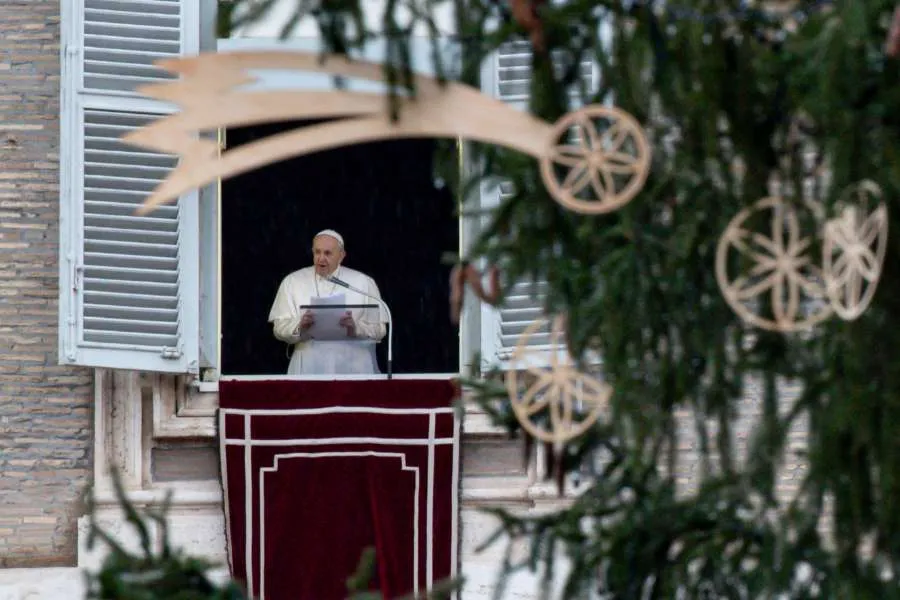“And so, for the entire course of her earthly life, Mary was free from any stain of sin, she was the ‘full of grace’ (Luke 1:28), as the angel called her. She was favored by a singular action of the Holy Spirit so as to always remain in perfect relationship with her Son, Jesus. Rather, she was Jesus’s disciple: His Mother and disciple. But there was no sin in her.”
Citing the hymn that opens St. Paul’s Letter to the Ephesians, the pope said that we too are created by God for the “fullness of holiness” granted to Mary from the beginning.
“And what Mary had from the beginning will be ours in the end, after we have passed through the purifying ‘bath’ of God’s grace,” he said.
“What opens the gates of paradise to us is God’s grace, received by us with faithfulness.”
Yet even the most innocent person is marked by original sin, he said, and therefore must engage in a lifelong struggle against its consequences. Lest we be discouraged, we should remember that the thief who was crucified beside Jesus “is the first person we are sure entered paradise,” the pope noted.
He continued: “But be careful. It does not pay to be clever -- to continually postpone a serious evaluation of one’s own life, taking advantage of the Lord’s patience. He is patient. He waits for us, He is always ready to give us grace. We may be able to deceive people, but not God; He knows our hearts better than we ourselves do.”
“Let us take advantage of the present moment! This, yes, is the Christian sense of seizing the day. To not enjoy life in each passing moment -- no, this is the worldly sense. But to seize today, to say ‘no’ to evil and ‘yes’ to God, to open oneself to His grace.”
The pope said that the “journey of conversion” begins with seeking God’s forgiveness in the Sacrament of Reconciliation. We must then seek to repair the harm we have done to others.
“And this, for us, is the path for becoming ‘holy and immaculate,’” he explained.
After the Angelus, the Holy Father greeted pilgrims in the square below, which was wet following a rainy morning. He singled out an Italian group holding a banner proclaiming “L'Immacolata vincerà” (“The Immaculate will triumph”). The group, inspired by the spirituality of St. Maximilian Kolbe, has brought the banner to St. Peter’s Square for the Angelus since the 1990s.







